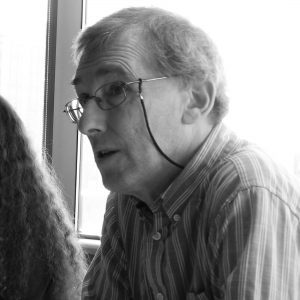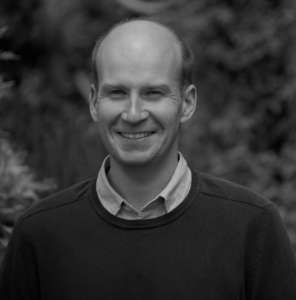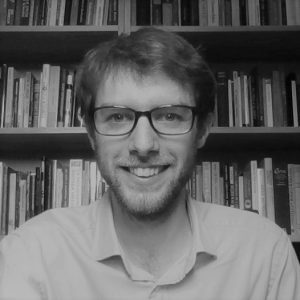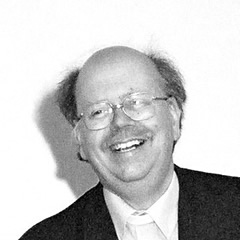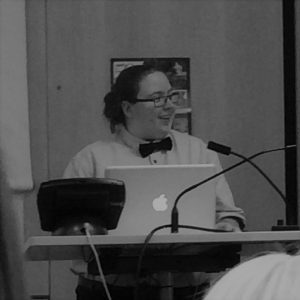Ethical Futures Network: Members
A multi-disciplinary network interested in developing theological responses to ecological challenges and digital technologies
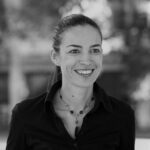
Professor Caroline Baillie is Professor of Engineering and Social Justice at the University of San Diego, and co-founder of the not for profit Waste for Life. Caroline’s research considers socio-technical processes and systems, which enhance social and environmental justice, and educational systems that promote these. She brings lessons learnt from these studies and practices into the classroom of all ages, to facilitate the transformation to a more equitable and just future. Her recent ‘Standing People Together’ program, borrows from forest school pedagogy to develop nature-based classrooms, conversations and retreats, with the aim of enhancing the connection of people with nature and each other. Caroline has published 27 scholarly books, an edited series of books on ‘Engineers, Technology and Society’ and over 200 book chapters, peer reviewed journal and conference papers.
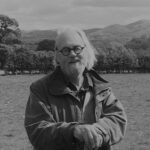
Rev’d Ian Ball has a background in education with an interest in the practical uses of ‘journey’ as a means of: personal and social development; understanding land, people, place and culture; and creative expression. His MPhil (Bangor) investigated, through recorded actions, the potential for ‘pilgrimage’ as a secular educational (rather than confessional) activity. The thesis was based on experiences derived from over 18 years of leading walking groups (‘temporary travelling communities’) lasting from between 4 days to 3 weeks, across England and Wales. Environmental issues became a feature of the walking pilgrimages after 1984 when the route (to Llandanwg), crossing hills in Mid Wales, witnessed upland heath being converted (through subsidies) into sheep pasture (an old social curse being visited on wildlife). Since 2003 the concept of development through journey has become embedded in over 16 separate international partnerships and workshops created with community groups across Europe. In the midst of all this movement Ian accidentally became ordained but regards himself as being ‘beyond belief’.
Rev’d Andrew Bevan worked in accountancy, the NHS, and a Christian drug and alcohol rehabilitation charity, before training for ordination in Oxford where he is now a Baptist minister. With responsibility for helping congregations live out their faith in the contemporary world, he is keen to develop his understanding, and a conceptual framework which is adequate for what seem to be the unprecedented challenges from technology, and ecological and environmental change.
Dr Adrian Evans is a Senior Research Fellow in Food, Water and Resilient Communities at the Centre for Agroecology, Water and Resilience at Coventry University. Adrian’s research is inspired by the urgent need to develop and promote types of farming and food consumption that are sustainable, just and resilient and that pay due care and attention to the needs of humans, animals and the natural environment–and he has worked on several European projects relating to issues around food, farming, animal welfare and water consumption. He was a member of the management team of the EU project Dialrel, which addressed religious slaughter issues and the consumption of halal and kosher foods. He also worked as a social-scientific researcher for the Welfare Quality® project, an EU-funded project which addressed issues of farm animal welfare. Adrian is the lead author of several European Union reports, journal articles and book chapters relating to issues such as; consumer concerns about farm animal welfare; the public understanding of animal welfare science; media representations of religious slaughter and the consumption of halal and kosher foods. His current research areas include; the practical ethics of food and drink consumption, especially in relation to sustainability and farm animal welfare; engaging citizens around food and farming issues; theories of consumption practices; food and communities research. Other interests include: historical geography; science and technology studies; geographies of material-culture; theories of practice.
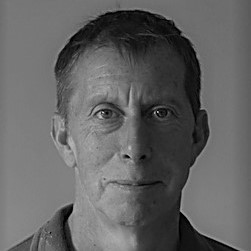
Dr Andy Gildon worked in agriculture, environmental science, stochastic modelling, statistics, expert systems, software development and systems architecture. Following a degree from Leeds University and a PhD from London he worked in various research capacities at Newcastle and Liverpool universities before joining ICI’s agricultural division. The last 25 years of his career were spent in senior management with Zeneca Pharmaceuticals and AstraZeneca. He has wide experience of managing large groups in several locations on three continents. He retains strong interests in environmental science and the ethics of science and management. A lifelong social democrat, he is interested in politics and the role of spirituality in civic society. As a Welsh speaker, he is fervent about the role of language learning as a means of understanding other cultures. He has also lead a number of local community projects to help people to engage with their environment, their locality and each other through art, history and sport.
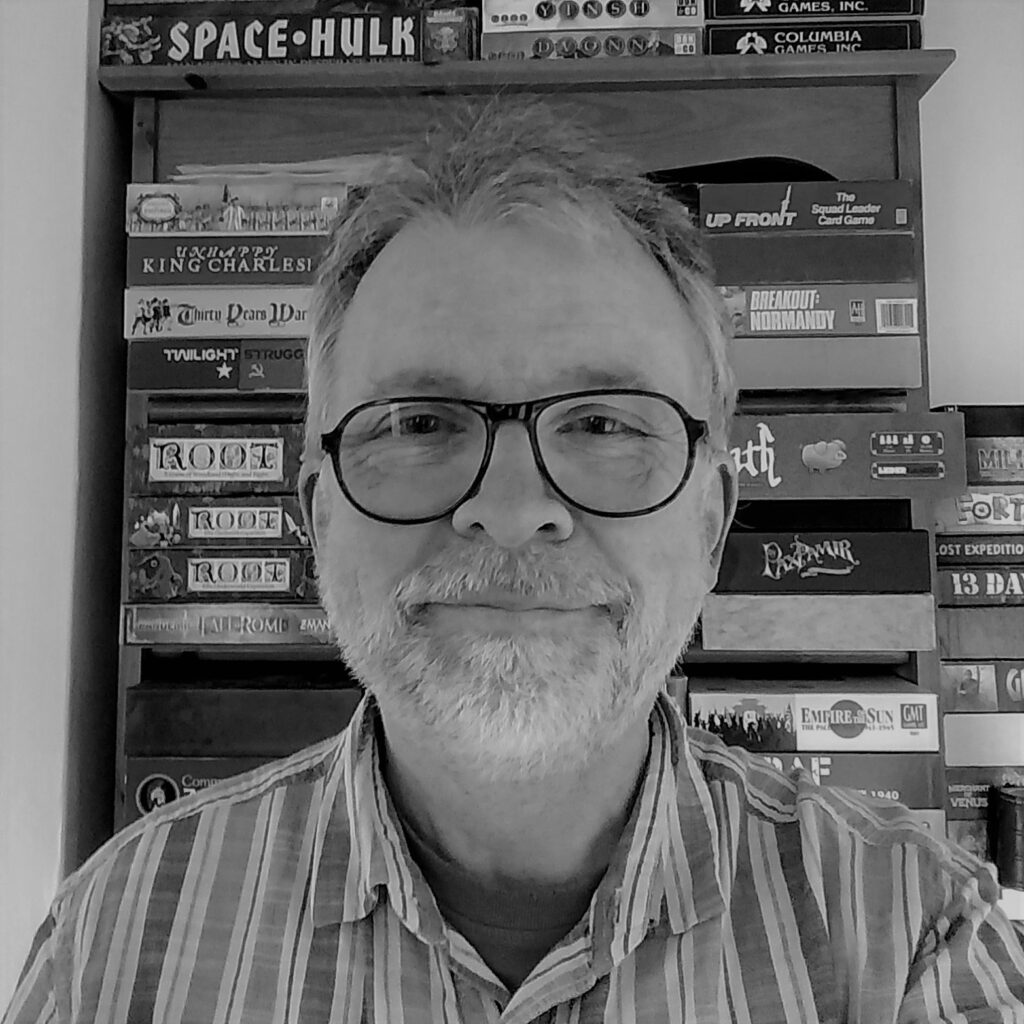
Dr Peter Haslehurst is a neuroscientist with an interest in machine learning and neural networks. His first career was in the IT industry where he worked as a technical software specialist, most recently as a database consultant for IBM. In 2007 he enrolled at Kings College London for a Masters in Neuroscience, which led to a PhD at University College London. Between 2014 and 2020 he worked with the Nigel Emptage group at the University of Oxford. His research used novel optical imaging techniques to investigate plasticity at individual synapses, and involved collaborating with a local startup company to develop and optimize a light sheet fluorescence microscope suitable for fast functional imaging of living neurons. He is currently “tentatively retired”. As you can probably see from his profile picture, he is also a lifelong boardgames enthusiast.
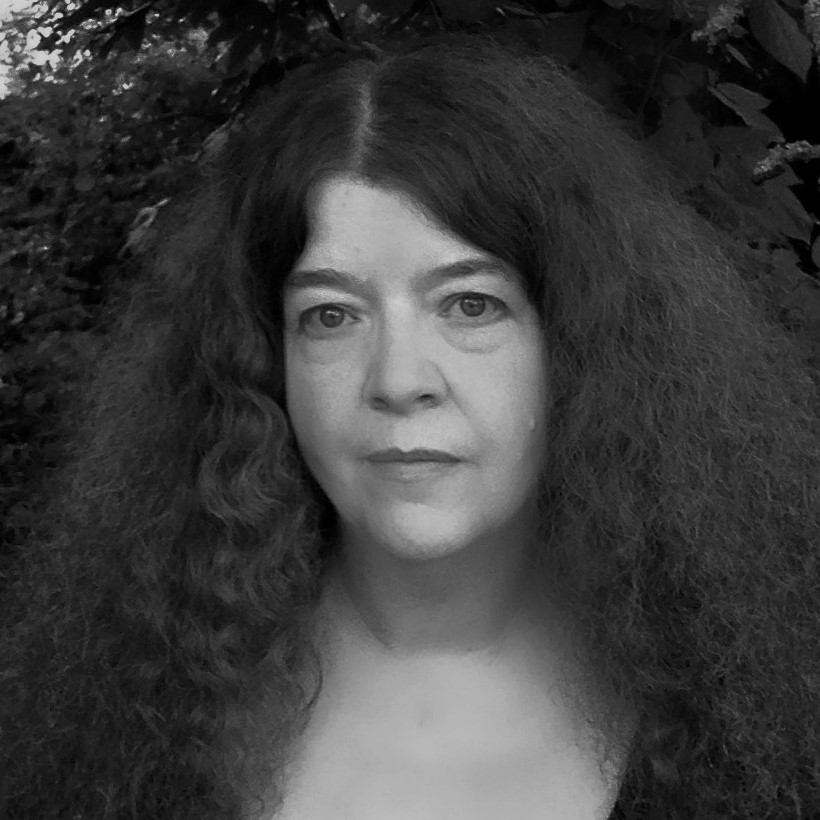
Dr Tina Hearn is a Social Policy Lecturer at the University of Birmingham specialising in social theory, the Director of Widening Participation in the School of Social Policy and a member of the steering committee of the Centre for Contemporary Philosophy of Technology. She has a strong commitment to widening participation and spends time, both inside and outside of work life, working with young people in a variety of ways in schools and colleges across the West Midlands. Tina has also been involved in community politics, with a focus upon equalities, racialisation and policy making. Tina teaches social theory, social policy and policy analysis, within which she has a particular interest in the roles of faith in politics and policy making. Tina’s current research interests revolve around the emergence of ‘New Materialisms’ and exploring some of their various inferences and implications for the roles of faith and faith movements in politics and policy making. Follow Tina on Twitter @SocialPolicyUoB
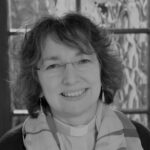
Rev’d Margot R. Hodson is Rector of Wychert Vale Benefice in Buckinghamshire and was previously Chaplain of Jesus College, Oxford. She is Theology and Education Director for the John Ray Initiative and is their representative on the board of A Rocha UK. Margot has published several books including Cherishing the Earth (with Martin Hodson, 2008), Climate Change, Faith and Rural Communities (with Martin Hodson, 2010) Uncovering Isaiah’s Environmental Ethics (2011), The Ethics of Climatic Scepticism (with Martin Hodson, 2015), A Christian Guide to Environmental Issues (with Martin Hodson, 2015) and An Introduction to Environmental Ethics (with Martin Hodson, 2017).
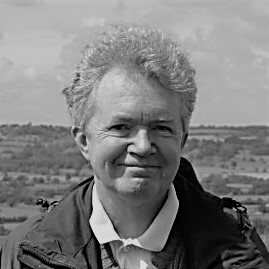
Dr Martin J. Hodson is Operations Director for the John Ray Initiative. He is a plant scientist and environmental biologist, and a former Principal Lecturer, and now Visiting Researcher at Oxford Brookes University. He is also Associate Member of the Institute of Human Sciences at the University of Oxford. Martin is Principal Tutor of Christian Rural and Environmental Studies (CRES). The tour scientist for the Hope for Planet Earth tours, he writes and speaks widely on environmental issues. Martin has over 100 publications, mostly in international science journals. His recent books are Functional Biology of Plants (with John Bryant, 2012), The Ethics of Climatic Scepticism (with Margot Hodson, 2015), A Christian Guide to Environmental Issues (with Margot Hodson, 2015) and An Introduction to Environmental Ethics (with Margot Hodson, 2017).
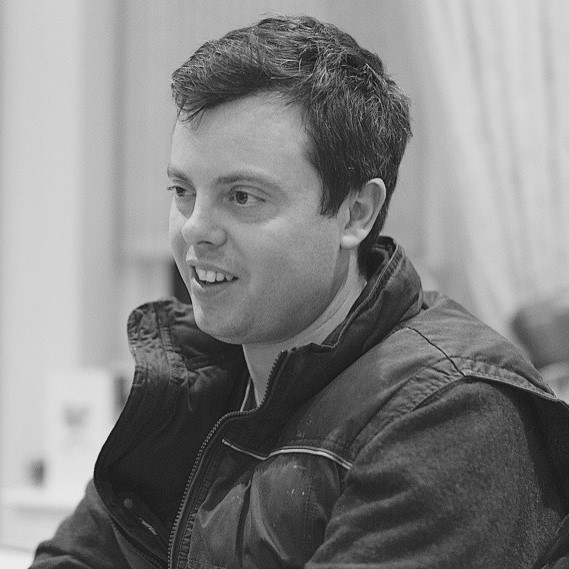
Rev’d Dr Tim Howles is a minister in the Diocese of Oxford. His doctoral thesis, completed at the University of Oxford, considered the theme of political theology in relation to a number of continental theorists, including Bruno Latour, Michel Serres and Eric Voegelin. Tim has published articles in a number of academic journals, has taught and lectured in theology at the University of Oxford, and has helped to convene a major inter-disciplinary colloquium on theology and the environment. He is also an Associate Tutor at the course for Christian Rural and Environmental Studies. Tim is the proud father of two young children. You can follow him on Twitter here or on Academia here.
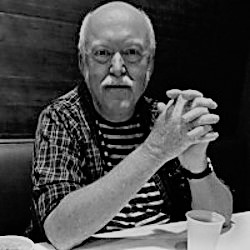
Rev’d Dr Jeff Leonardi is a freelance person-centred counsellor, a supervisor and trainer, a retired Anglican priest, an Adviser for Pastoral Care and Counselling in the diocese of Lichfield, and now lives in West Wales. He completed his PhD in 2008 on the spirituality of person-centred counselling in relation to Christian and other spiritualities, and the implications for Christian ministry and pastoral practice. He is now an Honorary Research Fellow at University of Wales Trinity St David, attached to the Religious Experience Research Centre at Lampeter campus, researching therapists’ experience of and beliefs about spirituality, which he terms relational spirituality. His publications include The Human Being Fully Alive: Writings in celebration of Brian Thorne (PCCS Books, 2010) and Spirituality and Wellbeing: Interdisciplinary Approaches to the Study of Religious Experience and Health (Equinox, 2020), co-edited with Bettina Schmidt.
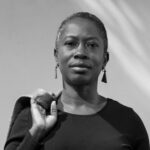
Dr Karen Lord is an award-winning author and independent research consultant in Barbados. Her fiction explores possible futures and alternate worlds with a focus on sociological and theological themes. Her academic qualifications range from a BSc (University of Toronto) in History of Science and Technology with a major in Physics to a PhD (Bangor University, UK) specialising in the statistical analysis of secular religiosity. She has co-authored reports with the Sir Arthur Lewis Institute of Social and Economic Studies (University of the West Indies) on development for the UNDP, and on youth employment for the Caribbean Development Bank.

Umrah Mahadik is a Lead Neighbourhood Planning Consultant. She has participated in the review of the Geography and Sciences department at Liverpool Hope University and, by invitation, has delivered the opening speech on leadership at the International Symposium on Impact Assessment (EIA/SA). She holds degrees in GIS and Environmental Science from Aston University, Human and Physical Geography from Liverpool Hope University, and the prestigious MCD-MSc Town and Regional Planning from the world’s first planning school at the University of Liverpool. Umrah is now completing the LLM Master of Laws England & Wales at Leeds Beckett University before starting her PhD at the University of Liverpool. Her innovative research focuses on connecting religious values to climate change adaptation and planning in UK cities.
Dr Tim Middleton holds degrees in both theology and science, including a PhD in Earth Sciences from the University of Oxford. He has also taught Earth Sciences at St. Anne’s College, Oxford, as a stipendiary lecturer. He is currently a postgraduate student in the Faculty of Theology and Religion at Oxford, where his research focusses on intersections between eco-theology, trauma studies, and strands of contemporary philosophy. Tim is an Associate of the Faraday Institute of Science and Religion, as well as a member of the European Forum for the Study of Religion and the Environment, the Society for the Study of Theology and Modern Church. He is also a regular speaker for God and the Big Bang, a national project which runs workshops for schools on science and religion. You can follow him on Academia here and on Twitter @TimMiddleton1. Tim has been Communications Officer at the William Temple Foundation since July 2018.
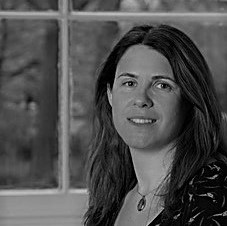
Dr Maria Power is a Research Fellow at Blackfriars Hall, University of Oxford. Dr Power’s academic research focuses on the role that religions can play in ameliorating violence and ethnic conflict. Her research on conflict and peace seeks to understand how religious organisations should behave in conflict and post-conflict situations in order to have a positive impact. She has published widely on the topic, especially in relation to the conflict in Northern Ireland. Maria has expertise in intra- and inter-faith dialogue, the role of ethics in the work and business environment, and peace-building practices. She has published and lectured widely on these topics both nationally and internationally. She is currently a co-investigator on a British Academy grant ‘Beliefs, Values and Worldviews at Work – a quantitative survey’. Maria is a Visiting Research Fellow at the Benedict XVI Centre for Religion and Society at St Mary’s University and in 2019 she will be a Holland Visiting Fellow at the University of Durham.
Rev’d Dr John Reader is a parish priest, theological educator and practical theologian with over 30 years experience in rural ministry. John has degrees from Oxford, Manchester and a Ph.D from the University of Wales, Bangor. He is Honorary Senior Lecturer at the University of Worcester and a Senior Tutor in Christian Rural and Environmental Studies at Ripon College, Cuddesdon. John is both interested and involved in current educational developments and the role of RE in community relations. John’s most recent publications are ‘A Philosophy of Christian Materialism: Entangled Fidelities and the Public Good’ (Ashgate, 2015) co-written with Chris Baker and Tom James, and Theology and New Materialism: Spaces of Faithful Dissent (2017) published by Palgrave Macmillan. Follow John on Twitter @DrJohnReader
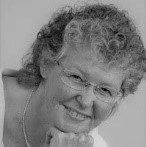
Professor Maggi Savin-Baden was educated at The University of Brunel and The University of London, where she gained her MA and PhD (1996). In 2010 she completed an MSc in e-learning at The University of Edinburgh. Maggi has worked in both pre and post 1992 universities in the UK over the course of her career and is currently at The University of Worcester, UK. Over the last 20 years she has written several books on problem-based learning, qualitative research methods and in 2015 completed Rethinking learning in an age of digital fluency. Maggi has a strong publication record of over 50 research publications and a total of 17 books, the latest in 2019 being Virtual Humans with David Burden, published by Taylor and Francis. She has gained external funding to research and evaluate staff and student experience of learning for over 20 years and her recent funded research is into the development of chatbots and virtual persona. In 2015 Maggi became a member of the Church of England Networked Learning Committee and in 2016 she was licensed as a Reader. In her spare time she bakes, runs, rock climbs, snowboards and attempts triathlons.

Dr Beth Singler is the Junior Research Fellow in Artificial Intelligence at Homerton College, University of Cambridge. Her anthropological research explores the stories we tell ourselves about artificial intelligence and robotics, as well as their social, ethical, philosophical, and religious implications. An experienced digital ethnographer, Beth also explores these perceptions through public engagement as a filmmaker, speaker, and creative writer. She has produced documentaries on AI, and the first, ‘Pain in the Machine’, won the 2017 AHRC Best Research Film of the Year award. She was one of the Evening Standard’s Progress 1000 in both 2017 and 2018, and in 2020 she was one of the 21 to Watch. She has spoken at the Hay Festival, the London Science Museum, the Edinburgh Science Festival, Ars Electronica, and New Scientist Live.
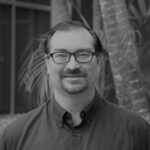
Rev’d Dr Eric Trozzo is a pastor of the New Jersey Synod of the Evangelical Lutheran Church in America and an Honorary Research Associate with Australian Lutheran College, University of Divinity. He formerly served on the faculty of Sabah Theological Seminary in Malaysia. His PhD, completed in 2011 (Drew University), is in Theological and Philosophical Studies. Areas of research interest include ecotheology, digitial and postdigital theology, contemporary Continental philosophy, the theologies of Martin Luther and Paul Tillich, and theopoetics. His books include The Cyberdimension: A Political Theology of Cyberspace and Cybersecurity (2019) and Rupturing Eschatology: Divine Glory and the Silence of the Cross (2014). He has been invited as a speaker and advisor to church bodies across Southeast Asia on contextualizing theology and including local ecological wisdom in that theologizing.
Kenneth Wilkinson Roberts is a PhD candidate at Lancaster University in the Department of Politics, Philosophy and Religion. Their research considers questions at the intersections of Religious Studies, Technology and International Relations. Their PhD investigates the implications of the pace of technological change on the operation and security of Chaplaincy in the UK Armed Forces. Kenneth also has research interests surrounding LGBTIA+ inclusion and peacekeeping in the Anglican church and has worked as an advocate for inclusion for transgender people in the Church of England for several years.
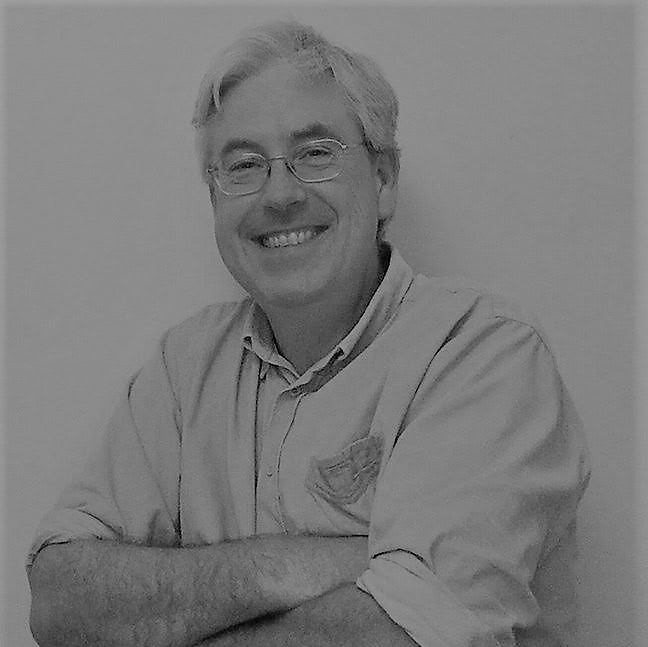
Dr Paul Woods is a research tutor at the Oxford Centre for Mission Studies and an Affiliated Researcher at The Leeds Centre for New Chinese Writing. His academic journey has taken him from engineering, through linguistics and theology, and on into continental philosophy and literary theory. His first PhD was in the Cognitive Linguistics of Chinese and the second was a Biblical Theological response to migration in East Asia. His principal research interest involves using lenses from continental philosophy and sociology to examine East Asian fiction as a representation of social change and trends.
